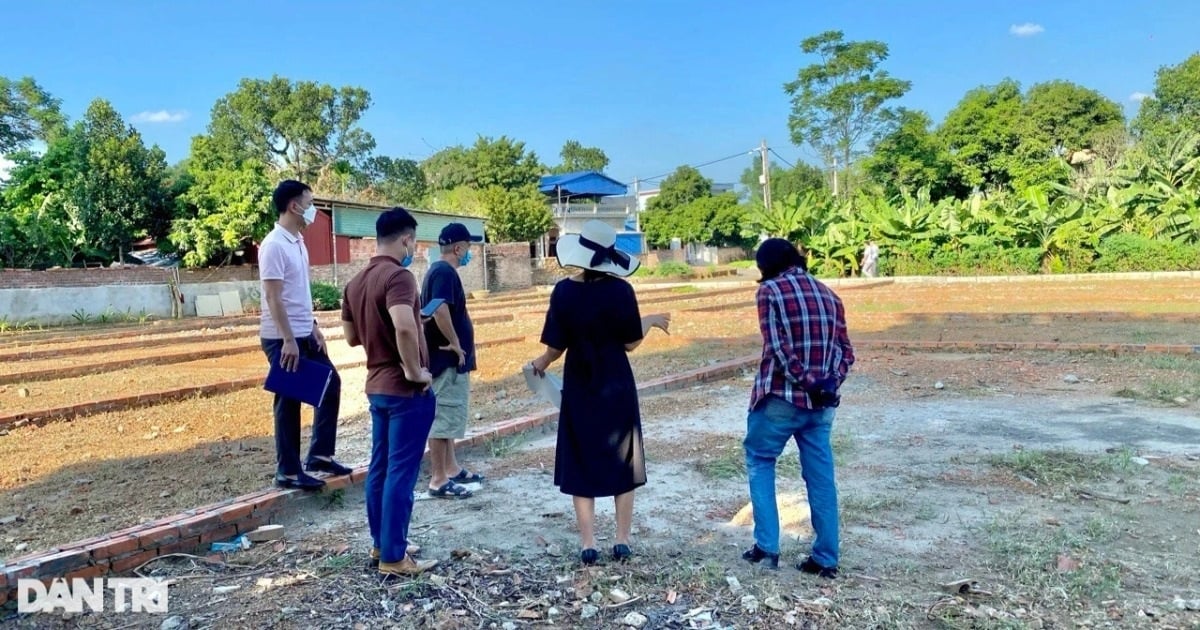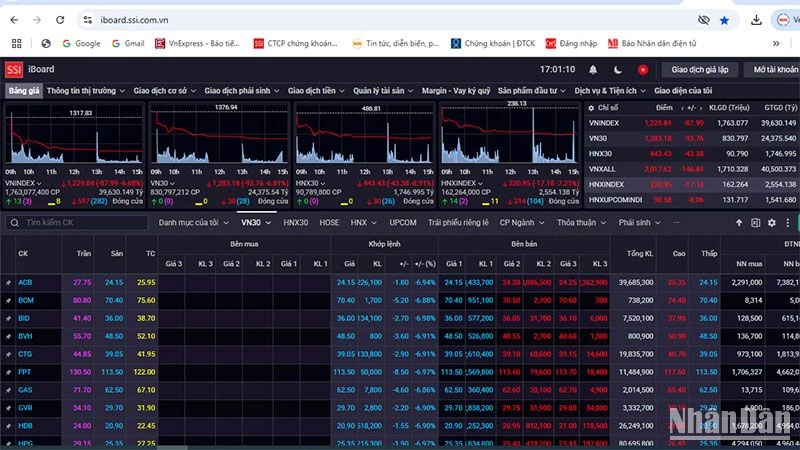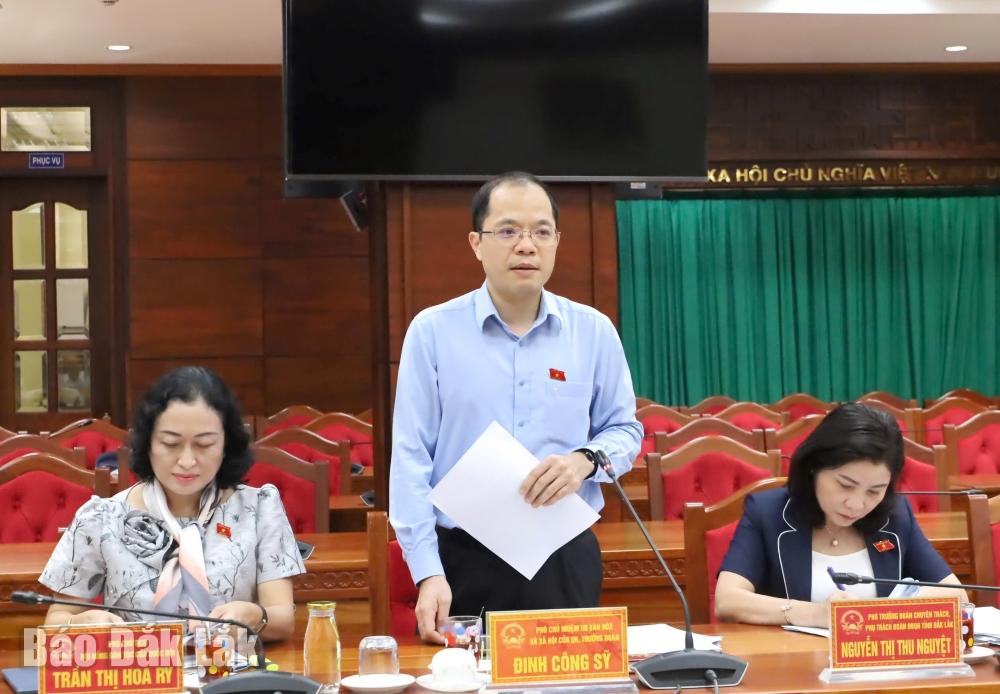The reason is that according to the Ministry of Finance, Vietnam's current personal income tax policy does not differentiate according to the transferor's real estate holding period.
Necessary but cautious
According to experts, if approved, this proposal could create incentives for individuals to hold real estate for the long term, instead of speculating for short-term profit. This would help stabilize the real estate market, reduce the risk of a “bubble” and ensure a sustainable housing supply.
In addition, tax revenue from short-term transactions can be increased, especially in the context of a vibrant real estate market, contributing to the state budget.
Mr. Nguyen Van Dinh - Chairman of the Vietnam Real Estate Brokers Association - analyzed: Taxing personal income from real estate transactions based on ownership time will be a solution to prevent speculation, help regulate the real estate market, thereby making housing prices more stable, especially in big cities like Hanoi or Ho Chi Minh City...
" Real estate taxation cannot be ignored because it is difficult to stabilize the real estate market. Taxation is mainly aimed at those who accumulate wealth instead of those who buy real estate for living or production and business purposes, helping to increase budget revenue and regulate the market, " said Mr. Dinh.
In addition, according to Mr. Dinh, the phenomenon of speculation and hoarding of goods in the face of scarce supply in order to wait for prices to increase in order to make high profits is very common. Therefore, taxing real estate is reasonable.
However, experts also emphasize that implementation also needs to take into account many factors.
Specifically, according to Savills Vietnam, to implement real estate taxation based on holding time, many technical solutions are needed such as: calculating technical infrastructure investment costs, tax calculation tools, especially transparency and digitization of all residential real estate data. These factors create major barriers, requiring large financial resources, determination from authorities and long-term coordination.

According to experts, taxing home purchases based on ownership period needs to take into account many factors. (Illustration: Minh Duc).
According to Mr. Dinh, taxation must have many technical measures that need to be considered correctly. For example, if someone buys a house but needs capital to sell it immediately, it must be different from buying and selling it immediately to make a profit.
Mr. Dinh emphasized that information data must be clear and transparent for taxation to be easy and fair. Many home buyers even have to use bank loans and when transferring, the loan interest is also included in the selling price and many other costs.
" Tax laws must be fully regulated to avoid causing disadvantages to people, especially those who do not intend to speculate or push up market prices ," he said.
Sharing the same view, Mr. Pham Duc Toan, CEO of EZ Property, said that taxing individuals transferring real estate based on the year of ownership with the goal of increasing budget revenue is correct. However, applying this regulation with the expectation of reducing real estate prices is "very difficult to achieve".
" When transferring a property, the owner will add all costs to the final selling price. As a result, the buyer is still the one who suffers the most, " said the CEO of EZ Property.
Mr. Le Xuan Nghia - member of the National Monetary and Financial Policy Advisory Council - pointed out the fact that the price of an apartment is currently up to 60 - 70 million VND/m2, too high compared to the income of many people. Meanwhile, many people buy houses not to live in but for the purpose of renting, so it cannot be called speculation. Obviously, taxing second real estate or according to the holding period is not a good solution for the current market.
According to Mr. Nghia, when applying taxes, it is necessary to calculate whether the tax revenue can cover the costs or not. If we want to prevent speculation, we must add more public services and other costs to ensure fairness for the people, leading to the cost of tax collection being higher than tax collection.
The "surfing" situation is quite common.
In fact, the situation of buying and selling, "surfing" real estate is quite common in Vietnam. A recent report by PropertyGuru Vietnam showed that in 2023, 15% of investors held real estate bought and then sold within 3 months, 36% held for 3-6 months, 35% held for 6-12 months.
This means that only 16% of investors in Vietnam hold their properties for 1-2 years or longer. Meanwhile, in Europe, the time to hold real estate before selling is as follows: 7% of buyers hold real estate for 1-3 years, 23% hold for 3-5 years, 33% hold for 5-10 years, 38% hold for more than 10 years.
The “buy fast, sell fast” phenomenon can come from many causes, but mainly due to “surfing” investors. Part of the reason for the surfing problem is that income tax on real estate transfer and rental activities in Vietnam is currently too low.
Typically, when transferring real estate, investors only have to pay 2% income tax, and income from real estate rental is equivalent to 5% of revenue (applied to revenue over 100 million VND).
Therefore, according to the Ministry of Finance, to limit real estate speculation, some countries in the world have used tax tools to increase the cost of speculative behavior and reduce the attractiveness of real estate speculation in the economy, including personal income tax.
In addition, some countries also apply taxes on profits from real estate transactions in accordance with the frequency of transactions and the time of purchase and resale of real estate. If this time occurs quickly, the tax rate is higher, if it occurs more slowly, the tax rate is lower.
The Ministry of Finance cited examples such as in Singapore, land bought and sold in the first year is taxed at 100% on the difference in value between the purchase and sale; after 2 years, the tax rate is 50%; after 3 years, it is 25%. Or in Taiwan (China), real estate transactions made in the first 2 years after purchase apply a tax rate of 45%; made within 2-5 years, the tax rate is 35%; made within 5-10 years, the tax rate is 20% and made after 10 years, the tax rate is 15%.
" To have a reasonable level of regulation and avoid speculation and real estate "bubbles", it is possible to study the implementation of tax collection on personal income from real estate transfers based on the holding period as experienced by some countries ," said the Ministry of Finance.
Regarding the specific tax rate, the Ministry of Finance believes that it needs to be studied and determined appropriately, reflecting the actual operation of the real estate market. At the same time, the application of personal income tax policy on real estate transfers based on holding time also needs to be synchronized with the process of perfecting policies related to land and housing; as well as the synchronization and readiness of information technology infrastructure for land and real estate registration.
Source


![[Photo] A brief moment of rest for the rescue force of the Vietnam People's Army](https://vstatic.vietnam.vn/vietnam/resource/IMAGE/2025/4/3/a2c91fa05dc04293a4b64cfd27ed4dbe)

![[Photo] General Secretary To Lam receives Japanese Ambassador to Vietnam Ito Naoki](https://vstatic.vietnam.vn/vietnam/resource/IMAGE/2025/4/3/3a5d233bc09d4928ac9bfed97674be98)
![[Photo] Special relics at the Vietnam Military History Museum associated with the heroic April 30th](https://vstatic.vietnam.vn/vietnam/resource/IMAGE/2025/4/3/a49d65b17b804e398de42bc2caba8368)
![[Photo] Prime Minister Pham Minh Chinh chairs meeting after US announces reciprocal tariffs](https://vstatic.vietnam.vn/vietnam/resource/IMAGE/2025/4/3/ee90a2786c0a45d7868de039cef4a712)
![[Photo] Moment of love: Myanmar people are moved to thank Vietnamese soldiers](https://vstatic.vietnam.vn/vietnam/resource/IMAGE/2025/4/3/9b2e07196eb14aa5aacb1bc9e067ae6f)














![[Infographic] Government bond market March 2025](https://vstatic.vietnam.vn/vietnam/resource/IMAGE/2025/4/3/e13239cdbcfd4968abc836c201204c43)










































































Comment (0)